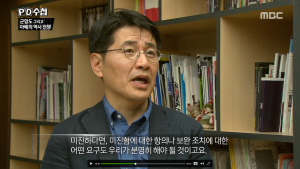Every organization reflects the values and the beliefs of its leader and constituents. And it’s not difficult to observe a gamut of characteristics that flow out of how the organization is run. The best perspective can be gained from inside, of course, regardless how it is viewed from outside. The net effect of an organization and the glow around it is usually not reflected internally. Depending on the purpose of an organization, the externality of net effect of the organization may be of the greater importance than the experience of what is going on internally. However, all organizations concern themselves heavily with the internal experiences of its constituents, especially those with authority and power.
The ideal, Platonic image of a philosopher king may strike as quaint for many, but the health of an organization often depends on it. It seems that the human tendency, unbeknownst to himself, is to set up a multidimensional framework of environment that best serves himself. Acton’s dictum reminds us that absolute power corrupts absolutely, and we see the effects ubiquitously. With authority, power, and influence is typically taken for granted in a handed-down framework, and constituents become somewhat of a captive audience with assumed roles. In many small scale, we see this playing out in cult groups, and there’s only a paper-thin difference when compared to socially accepted organizations. With the right elemental factors, the organization can sustain itself for a long period of time while remaining remarkably ineffective. In this reality, we often trust our leaders, mere human being, with a great risk. Integrity is often cited, but not practiced. Integrity comes with a heavy responsibility that should test the limits of internal conflicts we experience as human beings, but not many individuals are built to withstand such awesome struggle without a sense of abandonment of self. Without such tension at a highly private mental and spiritual space of leaders, we often get cheap imitations that behind a veil of public image turn out to be self-serving individuals to thrive. This is a sad reality of society we live in, and even though we have few examples in history such as Byzantine empire that groomed royal retainers, the modern society has completely abandoned such ideals to allow untamed, and uncultivated anima in the laissez-faire genius of Enlightenment.

 연어나 홍어 같은 어류는 알을 낳기 위해서 상류로 올라간다.
연어나 홍어 같은 어류는 알을 낳기 위해서 상류로 올라간다.